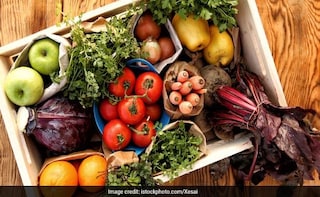Leftover foods may have been a respite in the course of sudden hunger pangs during odd hours of the day. All you need to do is to reheat and savour them without having to waste any extra minute in cooking. But wait, have you ever wondered if the foods that you are reheating are safe to eat anymore? Well, some every day foods that we consume may not be as safe after being reheated as they tend to lose their nutritional value. Yes, you heard us. According to Nutritionist Lokendra Tomar from Weight Loss Clinic, Delhi, "Here's a golden rule of reheating food - never ever reheat high-protein foods."Read on as we list down foods suggested by Lokendra Tomar that you must stop reheating right now. Take a look -
3. EggsWe all know, eggs are a rich source of protein, however, cooked egg or boiled egg can cause serious harm when exposed to heat again and again. Once you have cooked eggs, eat them immediately but if it is kept for a longer period, don't reheat, rather just eat cold because high protein food contains lot of nitrogen. This nitrogen may get oxidised due to reheating, further causing cancer.(Also read: Cloud Eggs: A Unique Way of Making Eggs is Going Viral)
4. ChickenYou would know, piping hot chicken does taste so delectable, however, if you are saving the curry for the next day, do remember to not heat it again and again. The protein composition in this staple completely changes when it is taken out of the refrigerator to heat. This can cause problems in the digestive system. Make sure you are not heating it on high temperature.(Also read: 10 Simple Ways to Keep Chicken Moist and Flavorsome)
5. PotatoesPotatoes being a staple are the best and easiest to store, reheat and consume. Unfortunately, you would need to think again. Potatoes are a rich source of vitamin B6, potassium and vitamin C, however, if they are reheated again and again, chances are they might produce Clostridium Botulinum (bacteria causing Botulism). Even if you leave the cooked potatoes out in room temperature, the production of bacteria will only increase. So if you want to avoid the growth of bacteria, best is to keep them refrigerated or throw them away if not being consumed within 1-2 days.
6. MushroomIt is recommended to eat mushrooms as soon they are prepared. Ideally, they shouldn't be stored to consume next day as it is a powerhouse of proteins and have generous amounts of minerals and by reheating them, you are breaking these proteins further, causing havoc in your digestive system. Hence heating them will generate toxins which contains oxidized nitrogen and free radicals. Even if you are keen on storing mushrooms for the next day, make sure you eat them cold.(Also read: 5 Amazing Reasons to Add Mushrooms to Your Daily Meals)
7. Cold Pressed OilOne of the best sources of omega-3 fatty acid is cold pressed oil like flaxseed oil, olive oil and canola oil. Omega-3 fat is very sensitive to temperature as it breaks and becomes rancid above 40 degree centigrade. Therefore, never heat cold pressed oil before consumption.(Also read: Will Re-Using leftover Cooking Oil Harm Your Family? Read This)
Storage of foods plays a vital role in keeping them safe and edible enough. So if you are planning on storing them, keep in the refrigerator to avoid production of bacteria that may turn harmful for your health.
Advertisement
Advertisement
Advertisement
For the latest food news, health tips and recipes, like us on Facebook or follow us on Twitter and YouTube.
Advertisement
